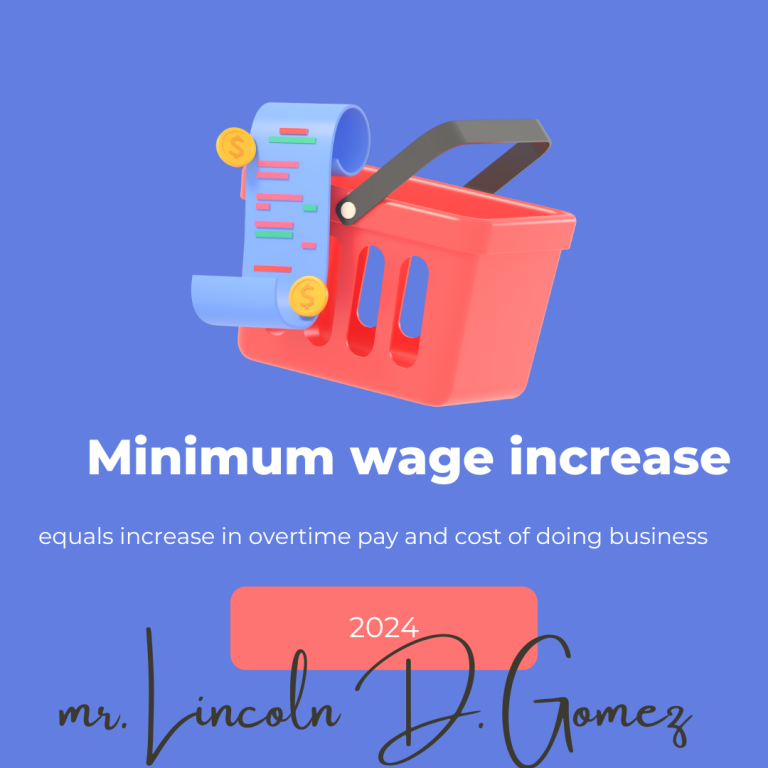The Code of Corporate Governance of Aruba: A Nightmare on the Way!
Someone once said that you should avoid watching the process of making legislation and sausage. Once you have seen either, you will develop a dislike for both. The idea of a new law is an initiative to create legislation to address a particular (burning) need or concern. A law has to serve a purpose; if it serves no purpose, it should not be enacted. It would be a shame to spend scarce public resources, in money and person-hours, to create a law that serves no purpose or is “too much muscle” for the problem at hand, causes more harm than good, and should be avoided. In simple words, if you need to catch a mouse, build a proper mousetrap. Don’t build a bazooka for that task because you can be sure that the enforcers will grab the bazooka anytime over a piece of cheese.
Today, I will share some thoughts on one such piece of legislation whose initiators and supporters want to see it in force by the end of Q1 2024, at least as stated during a seminar I attended last year. There was another seminar last week, and the Q1 2024 will not be achieved, which may be suitable. It should be scheduled later, like Q1 2074, which is not a typo.
I will state one thing up front. I am not a fan of the scope of the draft legislation as it is today, and implementing this legislation would be the equivalent of spraying for mosquitoes with high doses of DDT (dichlorvos-diphenyl-trichloroethane, but in this case, with a sprinkle of cyanide and a dash of Uranium. Read along, and you will catch my drift.
The Dutch Corporate Governance Code
The Dutch Corporate Governance Code, introduced in 2003 and revised, was established to enhance corporate governance practices in the private sector, mainly publicly listed companies in the Netherlands. It responded to global and local corporate scandals and aimed to increase transparency, accountability, and the quality of corporate governance within Dutch publicly listed companies. Yes, big, sophisticated companies with millions and billions at stake are listed on a public stock exchange. The code covers principles and best practice provisions that regulate the relations between the board of directors, the supervisory board, and the shareholders. It emphasizes transparency, accountability, and the need for companies to create long-term value for all stakeholders. Amen to this wonderful thing!
It operates on a “comply or explain” basis, meaning that listed companies must either adhere to the Code’s provisions or explain why a deviation from the rules is necessary in their annual financial statements. These statements are public of the company’s nature of being listed. This approach allows for flexibility and acknowledges that not all provisions may suit every publicly listed company, but it encourages transparency and thoughtful governance practices.
The US Corporate Governance Code
As far as I can tell, with limited knowledge of US regulatory issues, no single document in the U.S. corresponds directly to the Dutch Corporate Governance Code; these laws and regulations collectively serve a similar purpose in guiding and regulating corporate governance practices for public companies in the United States.
- Sarbanes-Oxley Act of 2002 (SOX): In response to major corporate and accounting scandals, SOX established enhanced standards for all U.S. public company boards, management, and public accounting firms. It includes provisions on auditor independence, corporate governance, internal control assessment, and enhanced financial disclosure.
- NYSE and NASDAQ Listing Requirements: These stock exchanges have listing requirements, including corporate governance standards for listed companies. For example, they require a majority of independent directors on the board, establish audit committee requirements, and set forth codes of conduct.
- Securities and Exchange Commission (SEC) Regulations: The SEC oversees and enforces federal securities laws, including those related to disclosures, financial reporting, and corporate governance practices.
- The Dodd-Frank Wall Street Reform and Consumer Protection Act of 2010 introduced further reforms to increase transparency and reduce risks in the financial system, including some aspects of corporate governance.
Intermezzo
Before we go on, let’s pause and establish that in the Netherlands and the USA, these regulations, whether law or code of conduct, apply to multinational companies with a global presence listed on a public stock exchange like Euronext or Nasdaq. Once we establish this, do you not wonder why uberhaupt a regulation like this is being considered for Aruba? I do, and I can’t stop wondering why.
The Aruba Code of Corporate Governance
Regardless of what I think of the draft legislation or the State Council (Raad van Advies) will say about it, it is coming at us like a locomotive on full steam power. While I am sure the draft was made with good intentions, I am afraid those good intentions were taken out of scope and out of context. Some thought the Code would be a magical pill to cure decades of lack of control, enforcement, and education by the government in granting subsidies and making public funds available to a myriad of foundations that serve the public good in a wide array of areas. It would have been much better to address any deficiencies differently.
Sophisticated government corporations vs. simple foundations
Why? The Aruba Code is not aimed at publicly traded companies in Aruba because we have none — and, of course, we have no public exchange. It was aimed at government-owned or controlled companies and the so-called sui generis legal entities like SERILMAR and ATA. So far, so good, then a fatal blow was added, including all entities and foundations that receive subsidies from the government. Even if a foundation only receives a project-based subsidy of less than AFL. 10,000 per year. So they want to apply the same set of rules and standards that apply to Serlimar, ATA, Elmar, Web & Setar to foundations that receive (often by far more than enough) government funding. These rules are easily carried out by a WEB or ELMAR; after all, they have accounting and audit firms on retainer and are staffed by professionals who are paid a fairly decent salary. Most foundations rely on those professionals who contribute their spare time to help the community with no financial compensation! Finding professionals to join the board of a foundation is hard enough nowadays. Already burdening them even more with this set of complex rules and regulations is too much to ask for. This will cause many of those professionals who today sit on such a board to step down, causing a significant brain drain among those foundations. This will even weaken these foundations, inhibiting their ability to carry out their charitable goal. Those who step down won’t suffer, but rather the customers of those foundations. Customers like the elders, the orphans, the sick, and the vulnerable.
Secret law
Despite the significance and impact of this law, the text of the draft was kept classified or, as they say, under a strict embargo. During a seminar, a prominent lawyer confirmed that the Aruba Bar Association was not privy to the draft or consulted on the subject. Yet, these highly classified documents were made available to, among others, the local association of accountants and some seminar service providers so they could prepare for this and organize seminars on the subject! If it were not for that, someone like me would have no way of knowing that this loose train is coming at us at full speed. My accountant friends are all for this because it generates a new reporting discipline they must include in their financial statements, generating more revenue and increasing partners’ compensation. That extra cost will also have to be borne by the smaller goodwill foundations that often have to choose between spending money on simple financial statements feeding the sick or caring for the physically or mentally challenged—a moral dilemma. I respect and like our accountant friends, but in light of the bigger picture, I can’t share the same enthusiasm for this law as they do.
My fear
I fear that the implementation will disrupt the care and support that many foundations frequently provide to those most vulnerable in our society. Wait, but you ask, why am I mentioning care foundations in a discussion related to multinationals or publicly listed companies? Well, Aruba decides to be more Catholic than the Pope! These upcoming new laws are aimed (also) at every foundation in the field doing community work and serving needs such as preservation of culture, elder care, youth and children care, care for the physically and mentally challenged, and even your community center around the corner (centro di barrio). The code would also apply to government-owned (utility) companies or sui generis entities like the garbage disposal Serlimar and Aruba Tourism Authority.
The OCED guidelines on corporate governance
During a seminar last year, experts pointed out that the current draft goes beyond the guidelines that the OECD recommends for such codes. Again, why be more papist than the Pope. Why not follow globally proven standards and reinvent the wheel when the re-invention is tied to limited resources? This does not make sense, but this bazooka is being assembled as we speak and will soon become law.
Comparison and Scope Analysis:
This matter is far from simple, but let me run a (high-level) comparison. The Dutch Corporate Governance Code Scope primarily targets Dutch companies listed on a stock exchange, focusing on principles and best practices for boards of directors, supervisory boards, shareholders, and general meetings. It is a code of conduct and not a statutory law. It emphasizes transparency, accountability, and corporate governance quality. The draft legislation expands the governance framework to public and semi-public sectors, including public law entities, government companies, foundations, and associations primarily involved in carrying out a statutory task for the general interest, mainly funded by the government. This legislation also outlines the establishment of a Corporate Governance Authority with specific responsibilities towards these entities. Based on this simple comparison, it is evident that there is a gross mismatch between what the code is supposed to cover and what it does.
Amendment time
There is hope, minor, but there is. I hope that our members of parliament will take the time to read the sizable legislation documents, seek counsel, and use their constitutional right to amend laws that come to parliament and take out those provisions that go far beyond (global) norms and that will cause irreparable damage to the small goodwill foundations. It is evident that the promoters of this law and my buddies, the accountants, will not favor these changes. It is also apparent that they do not want any change, but they are not our elected officials. Our parliament members wore to uphold the constitution and to protect the community. The time to step up is now.
The full texts have now been released to the public, but I would say it’s a little too late. You can find them here. It’s a bit heavy and unsavory reading, but hopefully, you can stomach it and take action for the good of the community.















